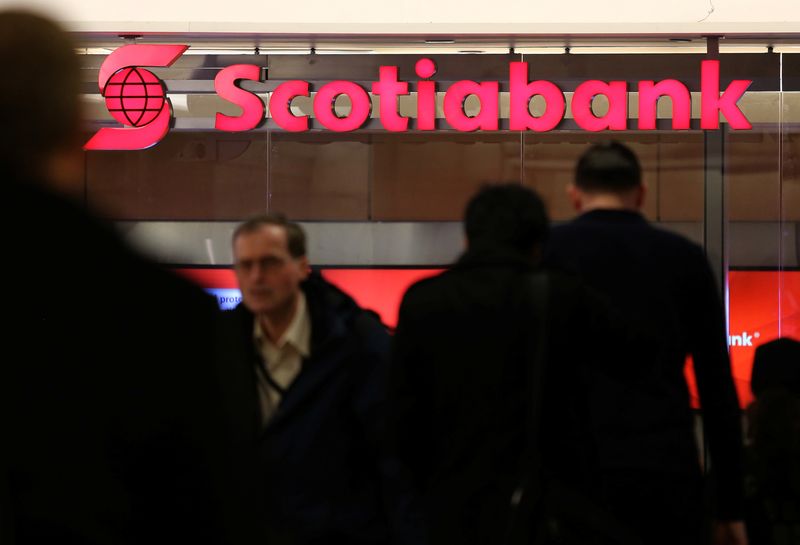TORONTO (Reuters) -Bank of Nova Scotia said on Tuesday that upcoming elections in the U.S. and Mexico are creating political uncertainty but Canada's third-biggest lender was well equipped to navigate the region's shifting environments.
Scotiabank's presence in the United States, Canada and Mexico makes it unique among Canadian banks, giving it among the biggest exposure to the North America's booming $1.6 trillion trade. In December, CEO Scott Thomson unveiled a strategy to benefit from the regional trade.
"With elections coming this year in Mexico and the United States, and soon in Canada, there is a level of political uncertainty that makes it difficult to make the long-term decisions that will ensure our future prosperity in the region," Thomson told investors at the bank's annual meeting.
"But difficult does not mean impossible," he assured shareholders, adding that Scotiabank is "well-positioned to be a major player as the continent looks to strengthen its ties for the benefit for all."
The "Mexico First" strategy offers clients in Canada, the U.S. and Mexico end-to-end trade finance, Thomson has said, and is expected to differentiate Scotiabank among its Canadian rivals.
The plan could expose Scotiabank to a market with unpredictable political risks and where foreign banks have struggled to make inroads, analysts have said.
Thomson said North American economic integration could increase through near-shoring, reducing regulatory hurdles and ensuring businesses can access capital.
He said the bank's international businesses have improved with lower capital while it continues to prioritize the three North American countries which hold a total gross domestic product of $30 trillion.

Net income from its international banking segment rose 16% in the first quarter of 2024, making it the strongest growth segment.
"Our plan is not to get out of those countries. Our plan is to run them more effectively," Thomson said responding to a question on the Latin American business.